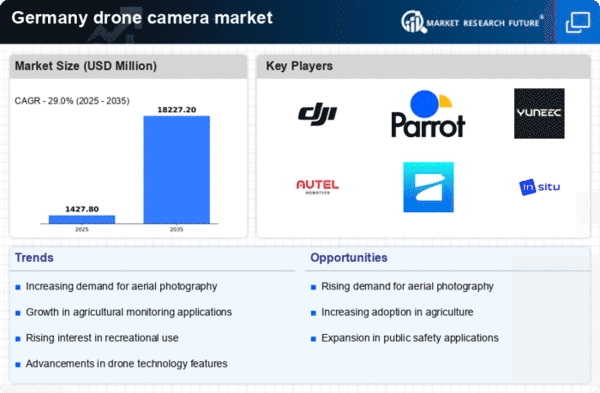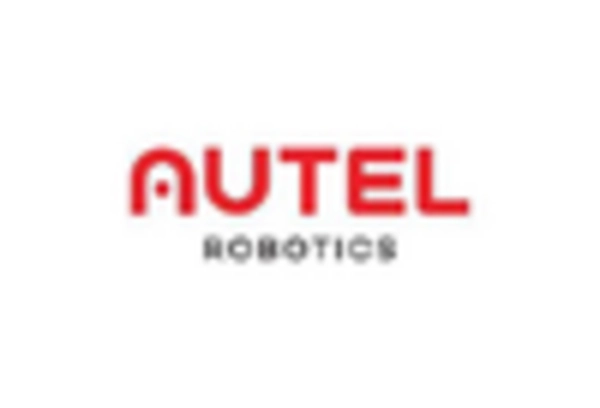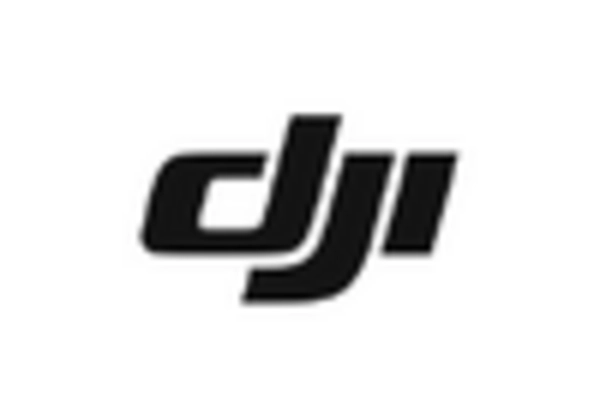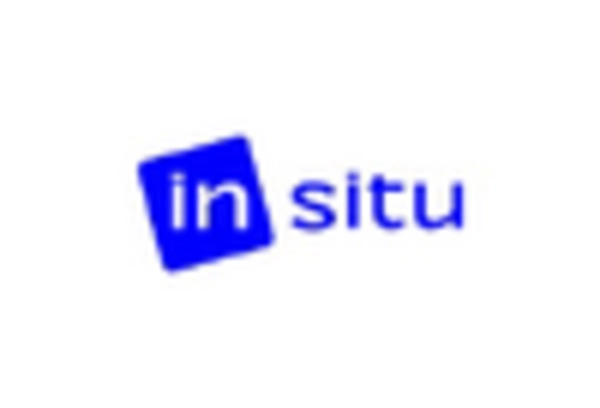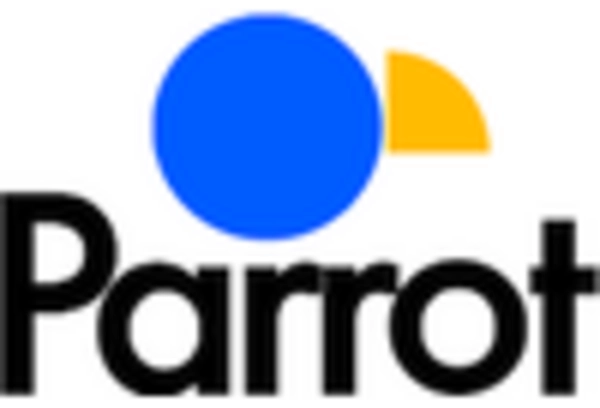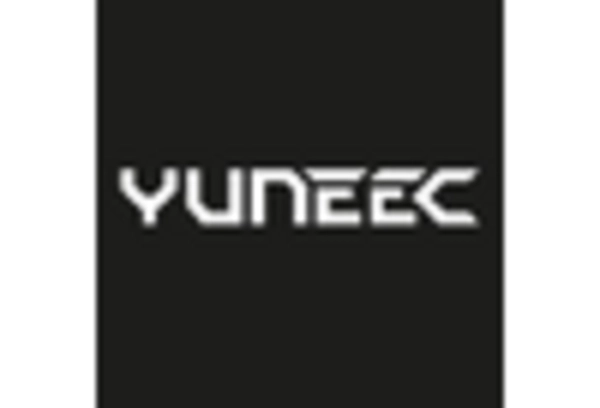Integration of AI and Automation
The integration of artificial intelligence (AI) and automation technologies into drone cameras is transforming the drone camera market in Germany. These advancements enable drones to perform complex tasks autonomously, such as obstacle avoidance and automated flight paths. In 2025, it is estimated that AI-enabled drones will account for around 30% of the market share, indicating a significant shift towards smarter technology. This trend not only enhances operational efficiency but also expands the potential applications of drone cameras in sectors like agriculture, surveillance, and infrastructure inspection, thereby driving growth in the drone camera market.
Growing Interest in Recreational Use
The recreational use of drones is gaining traction in Germany, contributing to the expansion of the drone camera market. Hobbyists and enthusiasts are increasingly purchasing drones equipped with high-quality cameras for personal use, such as capturing landscapes and participating in drone racing. In 2025, the recreational segment is projected to account for about 25% of the total market share. This growing interest indicates a shift in consumer behavior, where individuals seek to explore and document their surroundings through aerial perspectives, thus fostering growth within the drone camera market.
Rising Demand for Aerial Photography
The drone camera market in Germany experiences a notable surge in demand for aerial photography, particularly among real estate professionals and event organizers. This trend is driven by the increasing need for high-quality visual content that can enhance marketing efforts. In 2025, the market for aerial photography drones is projected to grow by approximately 15%, reflecting a broader shift towards visual storytelling. As businesses recognize the value of captivating imagery, the drone camera market is likely to see a corresponding increase in sales and innovation, with manufacturers focusing on enhancing camera capabilities and flight stability.
Increased Investment in Infrastructure
Germany's ongoing investment in infrastructure development is positively impacting the drone camera market. As the government allocates funds for urban planning and construction projects, the demand for drone cameras to monitor progress and conduct surveys is likely to rise. In 2025, the construction sector is expected to contribute approximately 20% to the overall growth of the drone camera market. This trend suggests that construction companies are increasingly adopting drone technology for its efficiency and cost-effectiveness, thereby propelling the drone camera market forward.
Environmental Monitoring and Conservation Efforts
The drone camera market in Germany is also being driven by the increasing focus on environmental monitoring and conservation efforts. Drones equipped with advanced cameras are being utilized for wildlife monitoring, forest management, and pollution tracking. In 2025, it is anticipated that the environmental sector will represent around 10% of the drone camera market. This trend highlights the potential of drone technology to contribute to sustainability initiatives, as organizations leverage aerial imagery to gather data and make informed decisions, thereby enhancing the relevance of the drone camera market.

